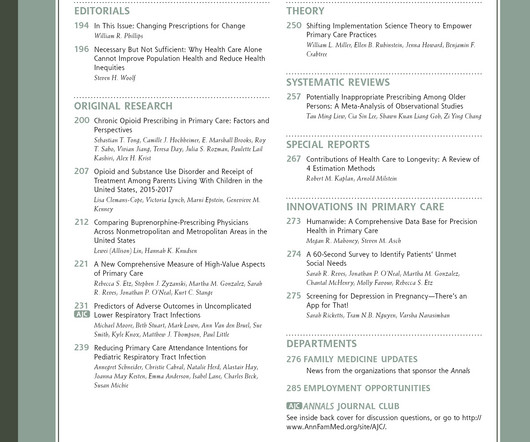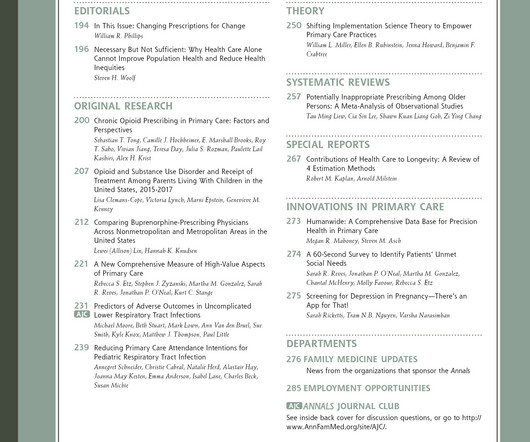Three Practices, Three Stories: best practices and unique approaches to substance use screening in rural primary care [Behavioral, psychosocial, and mental illness]
Annals of Family Medicine
NOVEMBER 20, 2024
Context: Primary care (PC) practices that implement Screening, Brief Intervention, and Referral to Treatment (SBIRT) can identify, reduce, and prevent problematic alcohol use that otherwise could go undetected. While screening and brief counseling in PC is considered best practice, it is not standard practice.



































Let's personalize your content